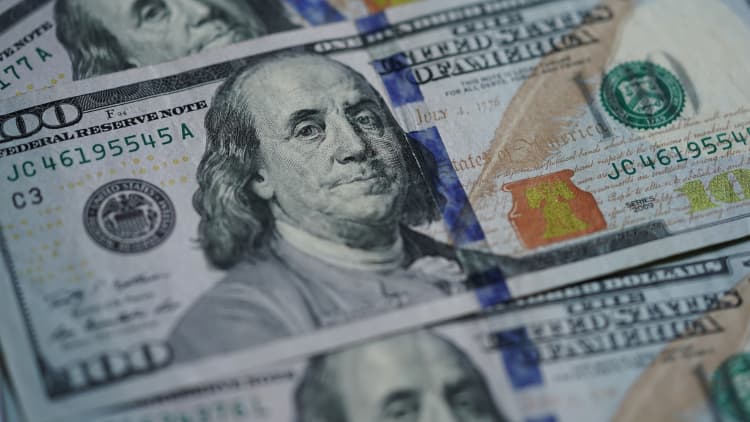Dead people may get some of the $600 stimulus checks the federal government began issuing Tuesday night.
That would mirror what happened this past spring, when deceased individuals were among the recipients of a prior round of direct payments, of up to $1,200 per person.
More than 1 million decedents had gotten a check by the end of April, worth a collective $1.4 billion, according to the Government Accountability Office. The IRS asked for that money back, leading to confusion and whiplash for heirs such as surviving spouses and family members.
More from Personal Finance:
If stimulus checks are raised to $2,000, here's how that would work
Millions of Americans likely won't lose a week of jobless benefits
Mom-and-pop businesses that took PPP loans may face a tax bomb
Now, a $900 billion Covid relief package, which President Donald Trump signed into law Sunday, may create a similar situation, though Congress put a firewall in place to limit its scope, according to tax experts.
The IRS and Treasury Department didn't return a request for comment.
The law, the Coronavirus Response and Relief Supplemental Appropriations Act of 2021, provides a one-time payment of up to $600 per person and $600 per dependent child. A family of four, for example, could get up to $2,400.
New firewall
But the measure doesn't allow people who died before Jan. 1, 2020 to receive a payment.
This safeguard is new, according to Janet Holtzblatt, a senior fellow at the Urban-Brookings Tax Policy Center and a former Treasury official. The CARES Act was silent on the point of payments to deceased individuals, she said — an omission that led to people who filed 2018 and 2019 tax returns, but subsequently died, to be issued checks.
"Now, they explicitly dealt with the issue of deceased persons," Holtzblatt said of the new law. "[But] it's silent on those who died in 2020."
That means people who died this year should be getting a $600 check, if they're eligible for one, according to Nina Olson, executive director of the Center for Taxpayer Rights, a nonprofit advocacy group.
It's silent on those who died in 2020.Janet Holtzblattsenior fellow at the Urban-Brookings Tax Policy Center
This year is poised to be the deadliest in U.S. history, with deaths expected to top 3 million (including non-Covid cases) for the first time.
It's also possible that someone who died in 2019 may receive a stimulus check, if up-to-date information from tax forms, the Social Security Administration or other databases isn't readily available to the IRS at the time a $600 check is issued, Olson said.
In those cases, the agency won't know someone is dead when paying them.

"Mistakes are going to happen," Olson said. "But they'll be few and far between."
The maximum stimulus payment will initially go to those who made $75,000 or less in 2019, per last year's tax return.
Return the money?
The IRS knowingly paid $1,200 to dead people via the earlier round of payments in the spring, according to a Government Accountability report published in June.
The agency was following its procedure during the Great Recession, when the government also issued stimulus checks to deceased Americans, the report said.
The tax agency, along with the Treasury Department, subsequently determined those payments to be improper, the GAO said. On May 6, the IRS asked heirs to return the money. (The same was asked of incarcerated individuals.)
But, like last time, the IRS doesn't have much legal recourse to force people to repay $600 stimulus checks if ultimately deemed to have been issued in error, Olson said.
The agency could ask the Department of Justice to bring a lawsuit against an heir or estate that doesn't refund a stimulus payment, but that's unlikely, Olson said.
"They bring so few of them in normal circumstances," she said of the Justice Department.


